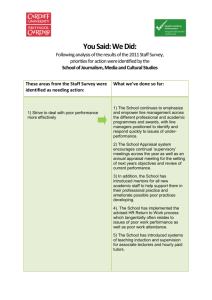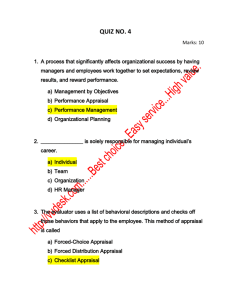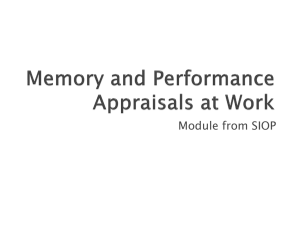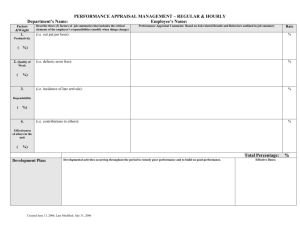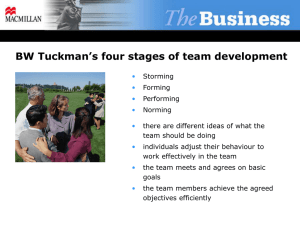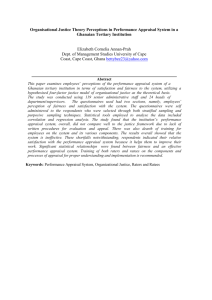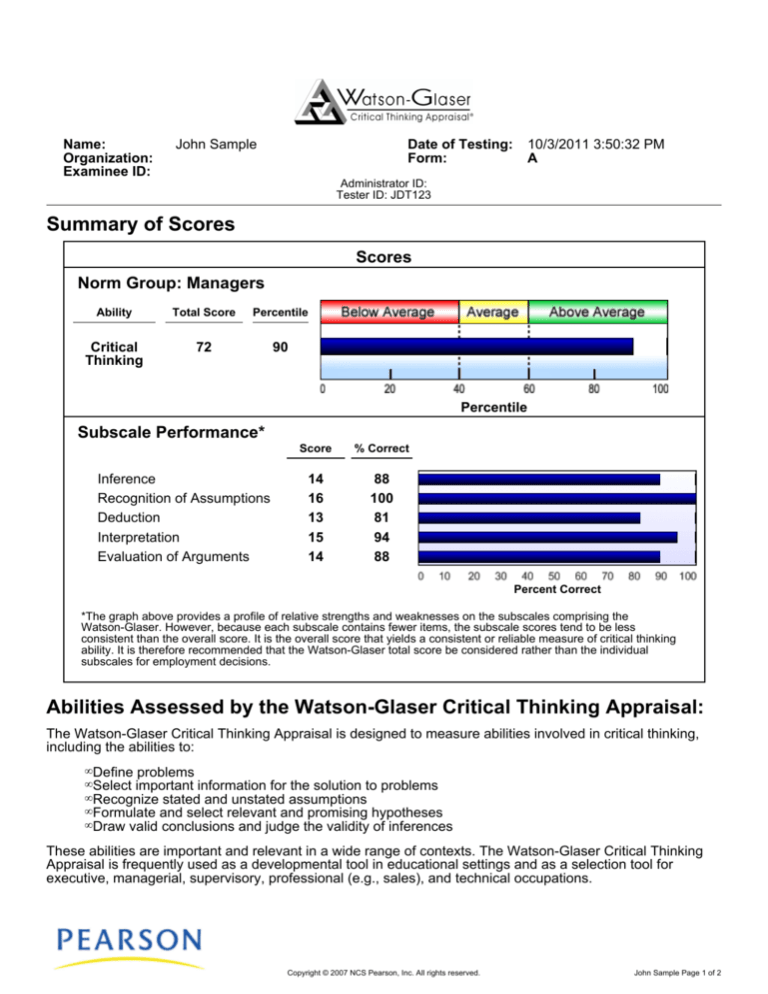
Name:
Organization:
Examinee ID:
John Sample
Date of Testing:
Form:
10/3/2011 3:50:32 PM
A
Administrator ID:
Tester ID: JDT123
Summary of Scores
Scores
Norm Group: Managers
Ability
Total Score
Percentile
Critical
Thinking
72
90
Percentile
Subscale Performance*
Inference
Recognition of Assumptions
Deduction
Interpretation
Evaluation of Arguments
Score
% Correct
14
16
13
15
14
88
100
81
94
88
Percent Correct
*The graph above provides a profile of relative strengths and weaknesses on the subscales comprising the
Watson-Glaser. However, because each subscale contains fewer items, the subscale scores tend to be less
consistent than the overall score. It is the overall score that yields a consistent or reliable measure of critical thinking
ability. It is therefore recommended that the Watson-Glaser total score be considered rather than the individual
subscales for employment decisions.
Abilities Assessed by the Watson-Glaser Critical Thinking Appraisal:
The Watson-Glaser Critical Thinking Appraisal is designed to measure abilities involved in critical thinking,
including the abilities to:
• Define problems
• Select important information for the solution to problems
• Recognize stated and unstated assumptions
• Formulate and select relevant and promising hypotheses
• Draw valid conclusions and judge the validity of inferences
These abilities are important and relevant in a wide range of contexts. The Watson-Glaser Critical Thinking
Appraisal is frequently used as a developmental tool in educational settings and as a selection tool for
executive, managerial, supervisory, professional (e.g., sales), and technical occupations.
Copyright © 2007 NCS Pearson, Inc. All rights reserved.
John Sample Page 1 of 2
Score Interpretation
Norm Group: Managers
Total Score
John Sample obtained a total raw score of 72 out of 80 possible points on the Watson-Glaser
Critical Thinking Appraisal - Form A.
Percentile Score
John Sample's score was better than or equal to 90% of the individuals in the norm group
indicated at the top of this report. This individual is likely to excel with the type of critical thinking
involved in complex analysis and decision making. Specifically, in comparison with peers from
the specified norm group, this individual is likely to:
• Define complex problems and situations clearly and objectively
• Readily identify subtle and obvious information needed to enhance
decision making or
problem-solving effectiveness
• Apply sound logic and reasoning when analyzing information
• Consistently draw accurate conclusions from information
• Develop strong arguments for the support of ideas
Note. The Watson−Glaser Critical Thinking Appraisal should never be used as the sole basis for making an employment decision. For
more information on best practices for using test scores in selection decisions, please consult the Watson-Glaser Critical Thinking
Appraisal Manual, the Uniform Guidelines for Employee Selection Procedures, the Standards for Educational and Psychological Testing, or
the Principles for the Validation and Use of Personnel Selection Procedures.
Copyright © 2007 NCS Pearson, Inc. All rights reserved.
John Sample Page 2 of 2


